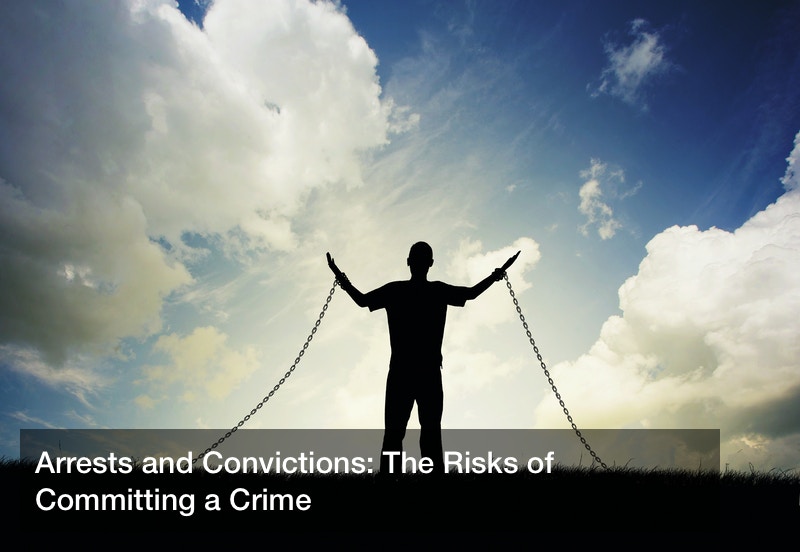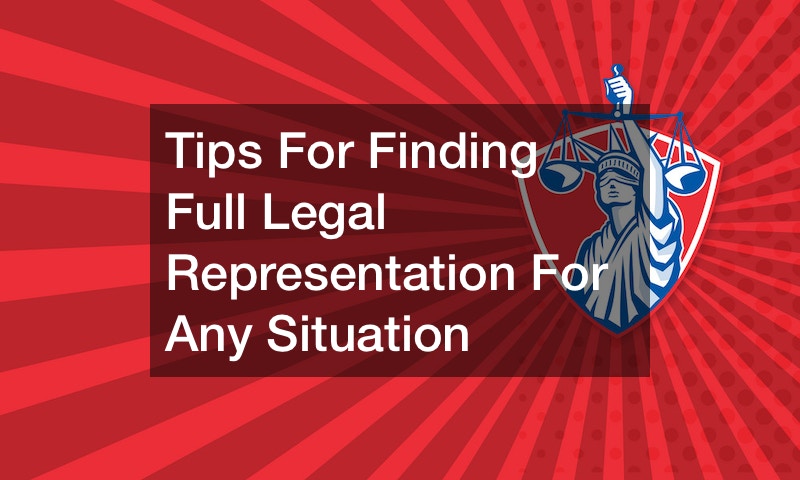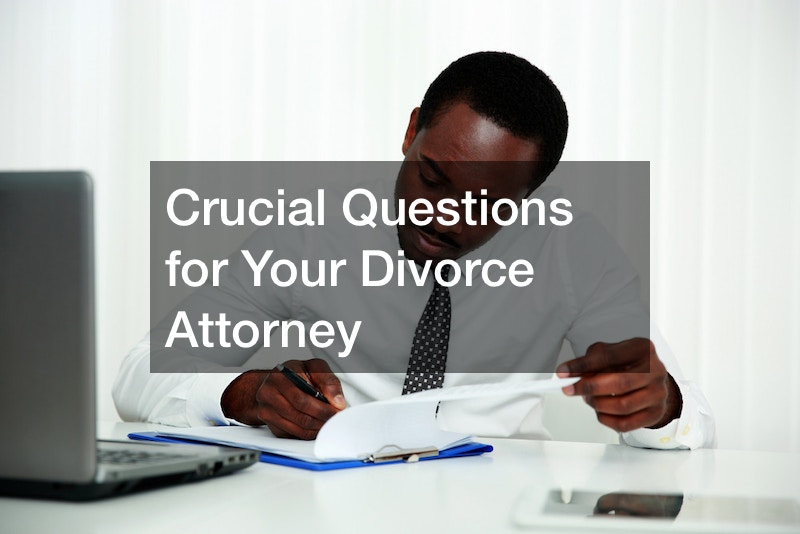
We’ve all heard the phrase, “if you can’t do the time, don’t do the crime.” In general, one of the main deterrents of crime for the average American is the fear of going to jail. While this is effective for some, it isn’t effective for all. What’s more, some crimes don’t necessarily hold the same degree of jail time as others — especially if you have access to a good criminal defense attorney.
We’re all entitled to an able defense and if you can afford a good lawyer you should certainly hire one. But for some, especially those that have the money for a particularly talented attorney, that sense of security can be all too comforting. As long as you don’t have to face jail time, you may think you have nothing to worry about.
Certainly, some crimes are less premeditated than others. Some can be the result of a careless error. For example, an employer may not secure a workspace as much as they should, which could lead to workplace injuries that they’re ultimately held responsible for. Or alternatively, an individual could drink more than they should during a night out, and in the resulting hours, they’ll drive when they shouldn’t. But being involved in a drunk driving accident doesn’t always equal jail time. In fact, you could be responsible for a car accident for many more reasons than those involving substances. In 2018 alone, there were around 40,000 people in motor-vehicle accidents. Ultimately, it’s important to remember that jail time is not the only consequence facing those that commit crimes of varying degrees. There is much more for you to worry about after being arrested than the amount of time you might spend in prison.
For one thing, you could be held responsible in a personal injury lawsuit. A personal injury lawsuit would be brought on by the injured party and their lawyer in civil court. But you could still be held responsible in criminal court, regardless of whether or not jail time is on the table and regardless of whether a civil suit is also being pursued. Below, we’re looking into some of the different penalties that might be involved if you commit a crime — even if you aren’t threatened with jail time after being arrested.

1. Monetary Penalties and Financial Strain
We should all be aware of the fact that there is the potential risk of being held responsible for serious fines, no matter what type of crime you commit. After being arrested, you will likely be informed of the types of penalties you could be at risk of suffering — some of which will involve monetary fines. This could cripple you financially, perhaps even for the long term, especially if you’re being held responsible in other ways. You could furthermore suffer fines if a personal injury lawsuit is pursued. Consider the fact that even if you are ultimately not held responsible in criminal court, you could be held responsible in criminal court.
Regardless of whether or not you’re convicted of a crime or held responsible in civil court, you could still be faced with real financial consequences after being arrested. If you’re charged with a crime, you’ll probably be stuck in jail unless you or someone you know posts bail. Sometimes, bail is an attainable amount of money. But in other cases, it’s impossible for you to pay or is only payable if you drain your savings. It depends on your personal situation, the crime of which you’re being accused, and the judge’s own opinion. A bail bond company can help you post bail. However, this will likely involve collateral of some kind and the outcome of your case can greatly affect your financial prospects in terms of bail bonds.

2. Restrictions
The restrictions that you could face following a conviction could be severe. Again, a lot of this depends on the crime of which you’re convicted. You may think that after being arrested for the illegal possession of firearms, facing a conviction without jail time is something of a relief. But at times, people who are convicted of crimes (including the aforementioned crime) are unable to legally purchase firearms of any kind thereafter. This furthermore means that if you attempt to buy a firearm at a gun shop, you could risk being reported to the authorities. It could potentially be a violation of your probation, depending on the extent of your crime.
Again, your restrictions will likely very much depend on the crime of which you’re convicted, as well as the degree of its severity. If you were convicted of driving under the influence or otherwise driving recklessly, this could result in you being forced to give up your license for an extended period of time. This suspension could even be permanent. In order to have your license reinstated, you would not only need to hire attorneys but also pay for various reinstatement fees. This can be difficult for some to financially bear. And if you’re not able to legally drive a vehicle, this could have major ramifications on your personal and professional life. Certainly, you should remember that just because you weren’t arrested for a crime, that doesn’t mean that you won’t have to deal with a long-term impact on your life.

3. Substance Abuse Treatment
There are a lot of issues that you can face if you’re convicted of any crime involving substance abuse. Even if you only abused the substance your crime is associated with once, you may find yourself being treated as if you have long-term addiction issues. This is because many simply won’t trust your word — which, in itself, is a penalty you’ll have to deal with. If you’re convicted of a substance-related crime, the penalties could ultimately be quite severe. Therefore, your lawyers will do whatever they can to keep your penalty from including jail time after being arrested. A common tactic of drunk driving lawyers is to argue for their clients to receive less severe sentences in exchange for completing a rehabilitation program of some kind.
Of course, not all rehabilitation programs (and, indeed, requirements for a lesser sentence) are the same. After being arrested, you may be surprised to find that it’s not enough to begin attending Alcoholics Anonymous meetings on a regular basis. You may also be required to go to a drug rehab center, which would potentially entail entering an in-patient program for an extended amount of time. The amount of time that you may spend in a drug rehab center will depend, of course, on a number of different factors. But it’s certainly something that can disrupt your everyday life, to the point that you may have difficulties when attempting to return to your normal routine. While you may not feel as if you need to go to rehab, your opinion becomes somewhat irrelevant in the face of a court-ordered rehab program. Remember that this can also impact your ability to retain a job or maintain your personal relationships.
4. Job Issues
When a company is considering hiring you, they could easily discover that you’ve been convicted or even arrested for a crime. After being arrested, you’ll discover that even if your arrest record was wiped clean legally, there very well could be news stories and even social media posts that would reveal your true history. This is difficult, if not impossible, to control. Since companies today commonly research employees’ histories online when considering them for available jobs, it could very much become a long-term issue that will prevent you from getting the employment that you want.
Furthermore, the restrictions mentioned above may very well prevent you from being accepted for certain types of jobs. You may not be able to work at certain major grocery stores if you’re not allowed to handle guns, simply because those major stores sell firearms and other weapons. It’s also possible that you may not be able to be around alcohol or within a certain area.
You may also find that if you are able to get a job, you might not be treated with as much trust as your other coworkers would be. Even if you are able to keep your past a secret from your coworkers, your bosses will know about it. Not only is keeping secrets at work both distracting and paranoia-inducing, but it’s also borderline impossible to maintain for the long term. It will be hard for you to prove, furthermore, that you’re being passed over for promotions and other opportunities due to your legal history. This type of employment discrimination has a major impact on how much money you’ll end up making at your job as well. The last thing you want is to be stuck looking up alternative means of income simply because you were unable to find a well-paying job after being arrested. If you don’t take your legal history seriously, you may very well find yourself looking up where to sell jewelry in order to support your income later in life. Depending on the crime of which you’re convicted or even merely arrested for, you could end up dealing with the consequences of a momentary lapse in judgment for decades.

5. Guilt And Psychological Consequences
In some cases, crimes do not affect the victims on an emotional or individualized level. This doesn’t mean that you shouldn’t take them seriously. Just because shoplifting from a major chain grocery store probably won’t affect an individual to a major degree, that doesn’t mean that you won’t be personally affected. But of course, some crimes are more personal than others and can have extreme effects on the victims and their families for years to come. Not only will they be psychologically affected, but you probably will be, as well. Think of how horrible you would feel if your one incident of drunk driving resulted in someone losing their life or being permanently disabled. While this will likely impact the severity of the penalty you’re dealing with, many report that this is nothing next to the guilt they feel after being arrested.
Think about how much guilt you might feel after knowing that due to your actions, a family had to suffer through the loss of a loved one and the subsequent funeral. This could very well result in you being mentally unable to return to work or your regular life (even if you do have a job and opportunities left). It is not uncommon for people to experience PTSD after incidents like these, which can certainly be difficult to recover from. Therapy and medication may become regular parts of your life as you deal with these issues. Ultimately, there is no guarantee that you will return to your full emotional functionality after suffering from trauma-induced mental illnesses. The consequences for you may be just as permanent as they would be for those that you harmed.
6. Social Stigma
This is similar to the issues you would experience when attempting to work after being arrested, as well as the problems that plague people who’ve committed crimes affecting others. But even if you don’t feel personally responsible or traumatized by the crime you committed, you still need to understand that others may hold it against you on a social level. We are conditioned to enforce a social stigma against those who have committed crimes, whether or not it’s deserved or fair in any way.
Ultimately, it doesn’t matter to many if there is a complex explanation behind your crime. People may decide to cut you out of their lives because of it or make it impossible for you to move on with your life. You may very well lose friends or even loved ones after you’re arrested, as they may choose to distance themselves from you for various reasons. And of course, it’s incredibly difficult to own up to the disappointment that you may have triggered in other people, which can be quite demoralizing. You can’t count on the fact that people will let you back into their lives, or even back into their homes.
Therefore, much of what you would typically take for granted about life can be completely upended after a crime is committed. Take this seriously; don’t risk your life, the lives of others, and your future on a lapse in judgment.



